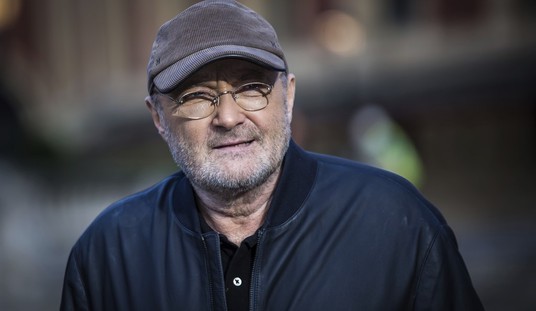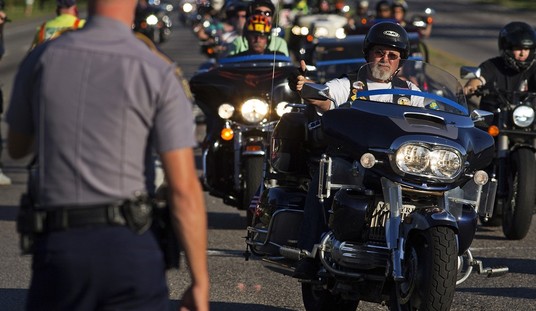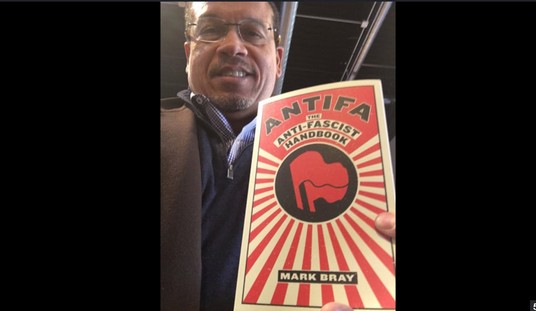Gentle readers, as I do from time to time, I ask you to join with me in a mental exercise, one that puts you in the shoes of a police officer. You are patrolling alone, in uniform and in a marked police car, when the radio informs you of a robbery nearby. You are provided with a description of the suspect, who is said to be armed with a gun. You drive to the place the suspect was last seen and there, right in front of you, is a man matching the description you’ve been given.
You exit your car, draw your sidearm, and order the man, loudly and in no uncertain terms, to show you his hands. Rather than comply, the man begins to edge away and then runs. As he runs, he pulls a gun from his pocket. And now, in less than the time it takes to imagine it, comes your decision: Do you fire at him, or do you wait until he makes his intentions more clear? And if you choose to wait, what might happen to you if you wait too long?
This was the situation facing Officer Brian Pitzer of the Albuquerque Police Department last October 29. Joaquin Ortega, 34, had reportedly robbed a woman and her 7-year-old grandson at gunpoint and then tried to carjack a truck. Video shot from Officer Pitzer’s lapel camera shows him stopping his car in the street outside a muffler store, where Ortega is standing in the parking lot. “Let me see your hands now!” Pitzer shouts to Ortega, who, for reasons soon to become clear, refuses to comply. Pitzer repeats the command several more times before Ortega breaks and runs.
In watching the video, it’s difficult to discern exactly when Ortega pulls his handgun. We can see him run between two cars parked in front of the muffler store, at which time Pitzer broadcasts that he is in a foot chase. Pitzer then fires two rounds as Ortega runs behind one of the cars. When Ortega emerges running from the other side of the car, Pitzer fires five more rounds at him.
Only by analyzing the video closely can one see that Ortega, as he runs from behind the car, throws the gun away behind him. With a bullet now in his shoulder, Ortega runs a bit further before dropping to the ground, there to be taken to a hospital, then to court, and finally, we can hope, to the prison he will call home for some years to come.
But not if his lawyer can help it. The story reached the attention of the Los Angeles Times, one of whose reporters sought comment from attorney Kari Morrisey, who represents Ortega. “Unfortunately, this is par for the course for the Albuquerque Police Department,” she told the Times, neglecting to add that it’s par for the course for Ortega as well. “You have an officer,” she went on, “who’s demonstrated an inability to handle the job, but I’m guessing they are worried about showing any weakness by firing him and admitting they mistakenly hired him.”
This is an apparent reference to Officer Pitzer’s two previous shootings, one of which, according to the Times, resulted in Morrisey filing a complaint against him. She also said that because the video shows no aggressive action by Ortega toward Pitzer, a conviction on the charge of assaulting the officer is unlikely. Which may in fact be true when all is said and done, but Morrisey took things into the realm of the absurd when she suggested that Ortega would try to cash in on getting shot by suing Pitzer for excessive force. The video, she said, would be “quite helpful” in such a lawsuit because it shows that Pitzer shot Ortega unnecessarily.
We’ll give Morrisey the benefit of the doubt here in speculating that by raising the possibility of a civil suit she is hoping to strengthen her hand in negotiating a better deal for Ortega in the criminal case. As is done in nearly all criminal cases, Ortega’s will in all likelihood be disposed of through a plea agreement, and dropping the charge of assaulting the officer is but one possible inducement for Ortega to plead guilty to other charges under an offer that will free him from prison at an age when he will still be able to eat solid food. But if Morrisey is serious about pressing a civil case against Pitzer, she will first have to represent her client, a man whose criminal record is nothing short of opulent, through a trial at which two of the many witnesses will be a grandmother and her 7-year-old grandson, who will describe to a rapt jury of being robbed at gunpoint by Ortega. Ortega and Morrisey will both be lucky if the jurors don’t boo and hiss at them before that testimony is finished.
But let’s say Morrisey is so devoted to her client’s cause that she does take the matter before a civil jury in the hope of making him the richest man in the New Mexico penitentiary. Does she really expect twelve members of the Albuquerque community to agree that the shooting was unjustified? Consider: Officer Pitzer monitors a broadcast of an armed robbery, then responds to the location to find Ortega, the described suspect, in the parking lot. Pitzer orders him to show his hands, which Ortega refuses to do. Ortega then runs, pulling a gun from his pocket or waistband as he does so. Morrisey would argue, I presume, that Officer Pitzer should have been able to discern, as he chased Ortega through the parking lot, that her client merely intended to toss the gun away in the hope of escaping.
And this may well have been Ortega’s intent. But would any rational person argue that a police officer in Pitzer’s position should be obliged to wait until a suspect actually points a weapon before firing in self-defense? If I chase someone and he pulls out a gun, if I blithely assume that he is only attempting to abandon it and that I needn’t worry about being shot, the Divine Mrs. Dunphy will soon enough be breaking out the black dress. No, if you pull a gun on Officer Dunphy, the only assumption I will make is that you intend to shoot me with it if I am so circumspect in my reaction as to allow it. I will not be.
Now, as to the fact that, as the video shows, several of Pitzer’s rounds were fired after Ortega tossed the gun, this can be explained by what use-of-force experts call “lag time,” i.e., the lapse in time between the decision to shoot and the actual discharge of the weapon. At the instant Pitzer perceived that Ortega had pulled a gun, he made the decision that he had to fire or risk being shot. He fired two rounds, after which Ortega disappeared behind the parked car. Pitzer held his fire until Ortega emerged from behind the car still holding the gun, then fired again at what he very reasonably still perceived as a deadly threat. Yes, Ortega tossed the gun during the second volley of rounds, but even if Pitzer was able to see the gun fly through the air, it was too late for him to hold his fire. If anything, Pitzer was commendable in his restraint if not in his accuracy – only one of his eight shots struck Ortega.
And no assumptions should be made regarding Officer Pitzer’s involvement in three shootings in less than seven years. I know nothing of Pitzer or his previous shootings, and it may be borne out that, as attorney Morrisey insinuated, one of his previous shootings was unjustified. But even if that turns out to be the case, the Ortega shooting was not. A record of three shootings in a relatively short career might be an indication of a problem officer, but it is far more likely to be evidence that Officer Pitzer, unlike some officers, is willing to place himself in harm’s way for the benefit of the citizens he swore to protect. People were being menaced by an armed man, and Pitzer went directly there to confront him. And he did what any reasonable officer would do when the man chose to ignore his commands and draw a weapon. Far from being a problem officer, my guess is that his superiors would wish for more like him.
However commendable his actions may have been, Officer Pitzer will nonetheless be dragged through a hellish ordeal in the legal system, during which he will be vilified by Ms. Morrisey and others like her, while the loathsome predator he shot is portrayed as an unfortunate victim. In the end, Ortega will go to prison without the swag Morrisey envisions, and Officer Pitzer will be cleared of any wrongdoing. It’s a shame that it will take a year or two before we see it happen.










Join the conversation as a VIP Member